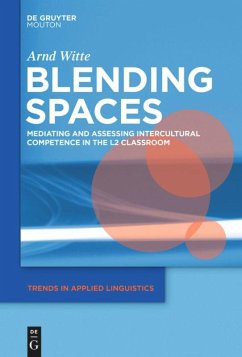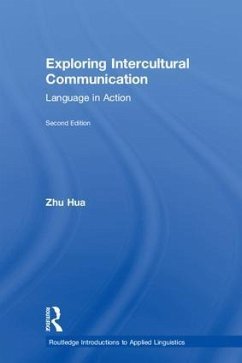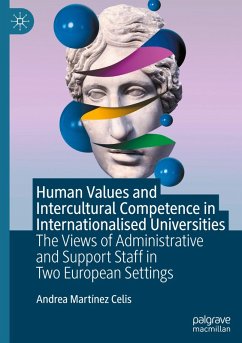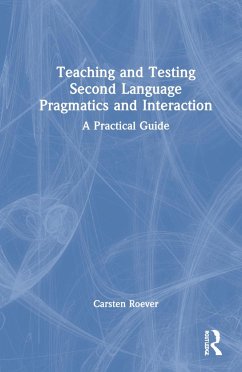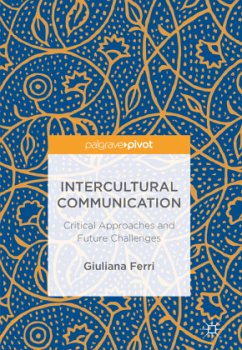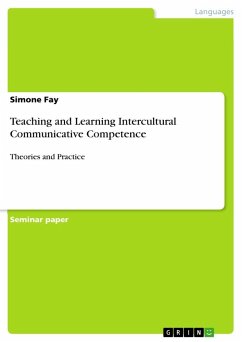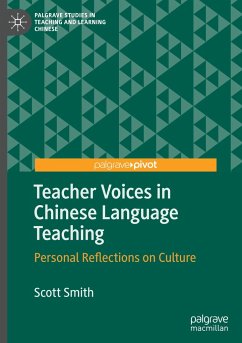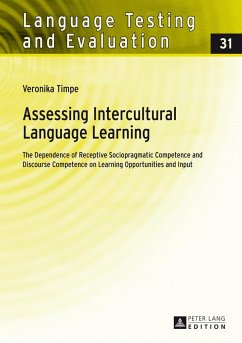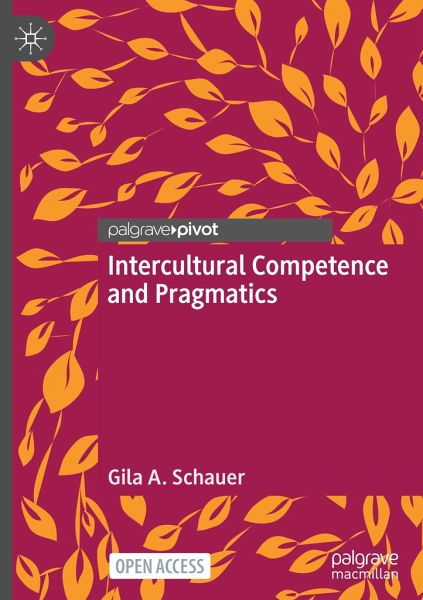
Intercultural Competence and Pragmatics
Versandkostenfrei!
Versandfertig in 6-10 Tagen
23,99 €
inkl. MwSt.

PAYBACK Punkte
12 °P sammeln!
This Open Access book examines the link between intercultural competence (IC) and pragmatics by asking frontline modern foreign language teachers in higher education teaching a variety of languages (e.g., Dutch, English, French, German, Italian, Spanish, Swedish) how they conceptualise intercultural competence and which skills, competences and knowledge they consider important in their teaching contexts. The data were collected with an online survey that focused on the relationship between intercultural competence and pragmatics.While international organizations such as the United Nations Educ...
This Open Access book examines the link between intercultural competence (IC) and pragmatics by asking frontline modern foreign language teachers in higher education teaching a variety of languages (e.g., Dutch, English, French, German, Italian, Spanish, Swedish) how they conceptualise intercultural competence and which skills, competences and knowledge they consider important in their teaching contexts. The data were collected with an online survey that focused on the relationship between intercultural competence and pragmatics.
While international organizations such as the United Nations Educational, Scientific and Cultural Organization (UNESCO) or the Council of Europe (CoE) agree that intercultural competence should play an important role in education, it is not always clear what IC may encompass in specific teaching contexts and subject areas. Examining how modern foreign language teachers in higher education conceptualise intercultural competence and the value they attach as well as the attention they give to various areas of pragmatics in their teaching is highly important, since those language professionals may be the final teachers learners encounter during their formal foreign language education. They are therefore in a unique position to shape modern foreign language learners' intercultural and pragmatic awareness, competence and skills.
This book will be of interest to language professionals, modern foreign language teachers and teacher trainers, as well as students and scholars of applied linguistics, pragmatics, and language education.
While international organizations such as the United Nations Educational, Scientific and Cultural Organization (UNESCO) or the Council of Europe (CoE) agree that intercultural competence should play an important role in education, it is not always clear what IC may encompass in specific teaching contexts and subject areas. Examining how modern foreign language teachers in higher education conceptualise intercultural competence and the value they attach as well as the attention they give to various areas of pragmatics in their teaching is highly important, since those language professionals may be the final teachers learners encounter during their formal foreign language education. They are therefore in a unique position to shape modern foreign language learners' intercultural and pragmatic awareness, competence and skills.
This book will be of interest to language professionals, modern foreign language teachers and teacher trainers, as well as students and scholars of applied linguistics, pragmatics, and language education.





